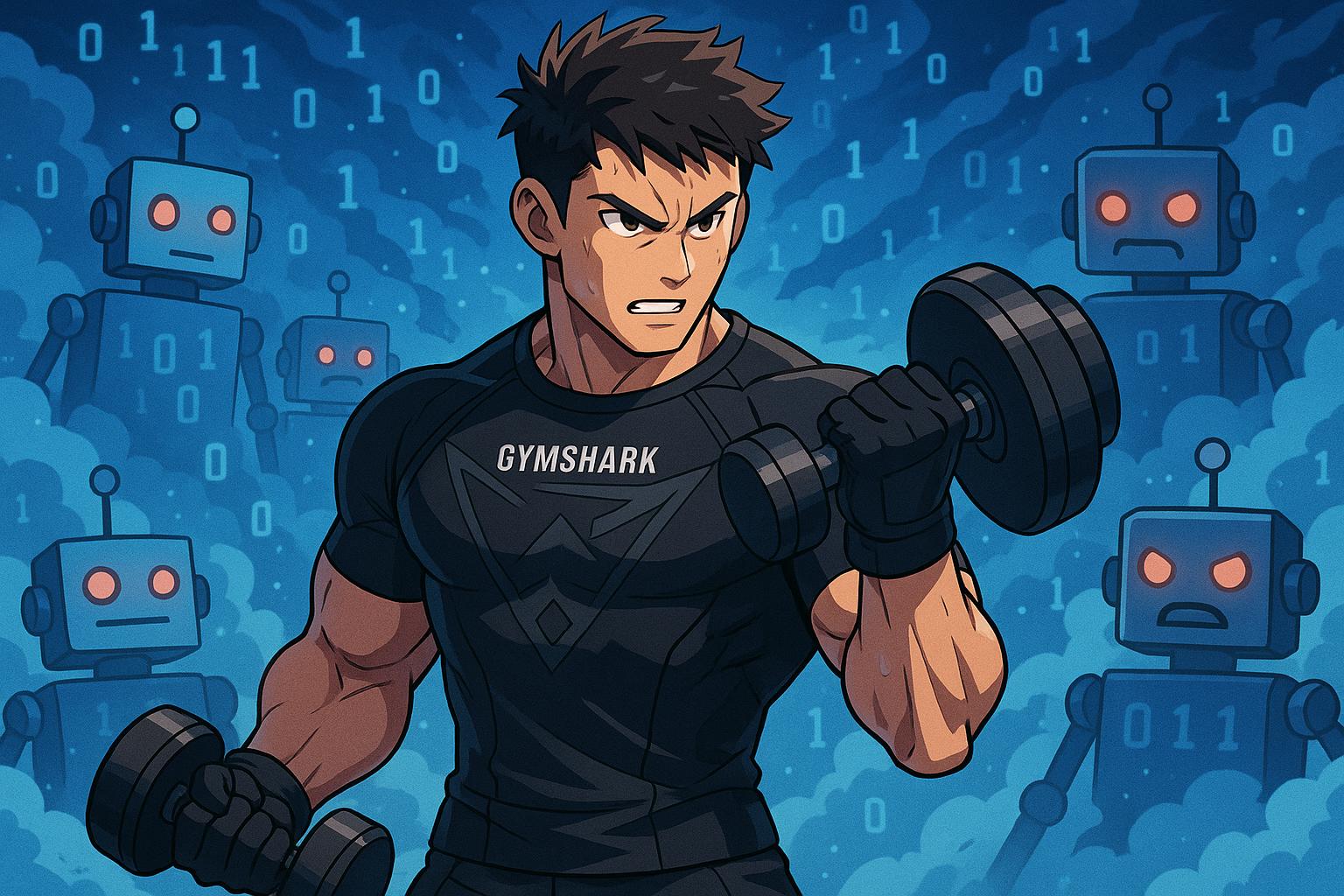Gymshark’s Onyx collection, widely revered among strength-training enthusiasts, faced an unanticipated setback during its much-anticipated release this year. This latest iteration of the Onyx line, two years in the making, was overwhelmed by automated purchasing bots that quickly snapped up the merchandise. The resulting backlash stirred a whirlwind of frustration among dedicated fans, prompting the brand to navigate a potential public relations crisis with remarkable agility.
The Onyx range has garnered cult status since its inception, with the design of its T-shirts echoing the aesthetic of comic book superheroes. Initially launched in 2016, the shirts had been sought after to the extent that earlier editions sold for over £1,000 on resale platforms like eBay and Depop. As anticipation built over the years, Gymshark’s chief brand officer, Noel Mack, described how a sense of mythos surrounded the Onyx line, creating a potent desire among fans for its return. “In those early days [of Gymshark], you had to earn your right to wear it,” he stated, underscoring the brand’s deliberate decision to withhold the range for five years to heighten its allure.
In the months leading to the launch, Gymshark employed a unique marketing strategy. Rather than traditional advertising routes, the company opted for subtlety, releasing fragmented content through influential athlete partners on social media. This deliberate teasing strategy stirred excitement within the fitness community, including cryptic posts on Snapchat that were removed shortly after publication. As the launch day approached, Gymshark showcased the collection's development with engaging videos, culminating in pop-up stores in cities like New York, London, and Dubai. These events drew massive crowds, with over 1,500 fans braving lines in New York for a chance to purchase the coveted merchandise.
However, excitement turned into disappointment when, within minutes of the online launch, bots overwhelmed Gymshark's website, denying actual customers the opportunity to buy the T-shirts. Mack recounted how the company swiftly realised that automated bots, rather than loyal fans, had accessed product links through back-end exploitation, leading to the completion of numerous fraudulent orders. This unanticipated outcome could have been brushed off as a success based on sales figures alone, but Mack felt a moral obligation to rectify the situation. Within hours, Gymshark cancelled all bot accounts and their corresponding orders, a bold move that garnered significant attention across social media platforms.
“We had the revenue, we could have just allowed them to have it. But I was sitting back with the guys and was like, no way. Morally, I can’t have this,” Mack reflected, noting that transparency and authenticity were crucial in maintaining brand trust. The team opted for a playful response, employing humour in their social media communications, which resonated positively with their audience. The decision to respond with a meme—a tactic that some might consider trivial—led to unprecedented engagement on their platforms, showcasing the brand's adeptness at leveraging its community-centric approach.
In the wake of this tumultuous launch, Gymshark was not only tasked with overcoming sentiment fallout but also with understanding how bots infiltrated their system. According to reports, many bots utilised Discord channels that promoted strategies for securing hot releases. To tackle the issue head-on, Gymshark’s team adopted a proactive approach by immersing themselves in these communities to learn and counteract the tactics employed by bots, ensuring future launches would be safeguarded.
While Mack pointed to an increase in various performance metrics following the relaunch—including website traffic and product sales—the brand still faced criticism from loyal customers. Some expressed lingering frustrations on social media, leading to calls for a boycott due to feelings of exclusion. Even amid positive feedback, Mack acknowledged the challenge of re-establishing sentiment among frustrated fans, yet maintained, “I’d rather that than it be because they didn’t care what we were doing.”
As Gymshark prepares for subsequent drops, the lesson for brands navigating similar obstacles is evident. Mack advises, “When you’re confused, ask, ‘what would your customer want?’ And then the right decisions become really, really obvious.” With a cautiously optimistic view ahead, Gymshark continues to leverage the strong connection it has cultivated within its community, even as it manages the complexities of digital commerce in a bot-infiltrated landscape.
📌 Reference Map:
- Paragraph 1 – [1], [3]
- Paragraph 2 – [1], [2], [6]
- Paragraph 3 – [1], [4], [5]
- Paragraph 4 – [2], [3], [6]
- Paragraph 5 – [1], [3], [4]
- Paragraph 6 – [1], [2], [3]
- Paragraph 7 – [1], [3], [4]
- Paragraph 8 – [1]
Source: Noah Wire Services
